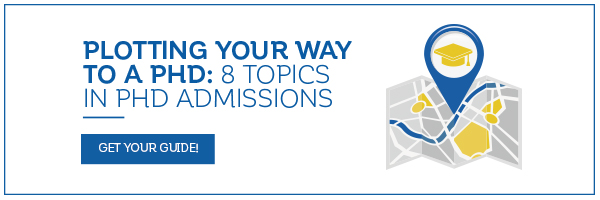

Letters of recommendation (LORs) are a key part of your application. Strong ones provide meaningful support, while a lukewarm one can really hurt your chances for admission. In this post, we’ll answer two questions: Who should write in support of your PhD application? How can you make sure your LORs are as good as they can be?
How to choose the best LOR writers
It is important to select LOR writers who know you well and, ideally, for a reasonably long period of time. Select individuals who can comment specifically and knowledgeably about your abilities. It is helpful if you have stayed in touch with your recommenders since you studied or worked with them.
Select writers who can address your research experience and potential. The more closely the writer’s background aligns with your field of study, the better. You should select faculty members to write the majority of your LORs for PhD programs.
If you have relevant work experience, you can also ask a current or previous employer. The employer should focus on your research potential. You can ask internship supervisors if the type of work you did as an intern is related to your intended field of study.
When you ask your recommenders if they would be willing to write in support of your application, ask whether they feel they can write a strong, positive letter. This provides a gentle way for a hesitant recommender to decline – they can admit that they don’t think they know you well enough to do so (or you might sense their hesitation), and you can move on to someone else who can and will.
How to help your recommenders write strong LORs
It is important to provide information to your recommenders that will help them write the strongest letter possible. This can include your resume, copies of work you produced for their class (for faculty members), and a list of job accomplishments (for supervisors). Also provide a list of the schools you are applying to and the specific degree programs. Include a link with instructions as to what to include in the letter. Provide all these materials at one time in an organized manner.
Offer to meet with your recommender to discuss your plans and goals. You can also send them a link to Accepted’s 10 Tips for Writers of Letters of Recommendation.
Agree on a timeline of at least several weeks for them to complete their letter. Be aware of the academic calendar if you are asking a faculty member; the final weeks of the semester are often very busy. Remember that professors go on sabbatical and might not be available at all times.
A few days before the agreed-upon deadline, send a reminder to your letter writer.
Say thank you!
Always remember to follow up with a thank you note. (Ideally, you can write another thank you note after you get in, sharing the good news!)
You need to choose your PhD letter of recommendation writers wisely and then present them with the right materials to assist them in constructing strong letters that will represent your greatest strengths. We can help you with this and with any other element of your PhD application. Check out our catalog of Graduate School Admissions Services, and let us know how we can help you achieve PhD admissions success!


By Alice Diamond, former associate dean for career and community service at Lesley University. Alice has a BA from Colgate University, an MA from Bryn Mawr College, and an MS from Cornell University. She has more than 35 years of experience in career and admissions advising for undergraduate and graduate candidates. Alice’s clients have been accepted to top programs in a wide range of fields. Want an admissions expert to help you get accepted? Click here to get in touch!
Related Resources:
• Choosing the Best PhD Programs, a free guide
• An Admitted Johns Hopkins MD/PhD Candidate Reflects on His Journey
• Lining Up Letters of Recommendation and Searching for Fellowships


